Zhang Dingyu didn't tell his colleagues that he had been diagnosed with an incurable nervous system disease: Amyotrophic Lateral Sclerosis (ALS). He kept this secret for nearly two years until the day he couldn't walk anymore while on the front lines fighting the novel coronavirus in Wuhan.
As the director of Wuhan Jinyintan Hospital, Zhang and his colleagues admitted the first seven patients infected with unidentified pneumonia in late December.
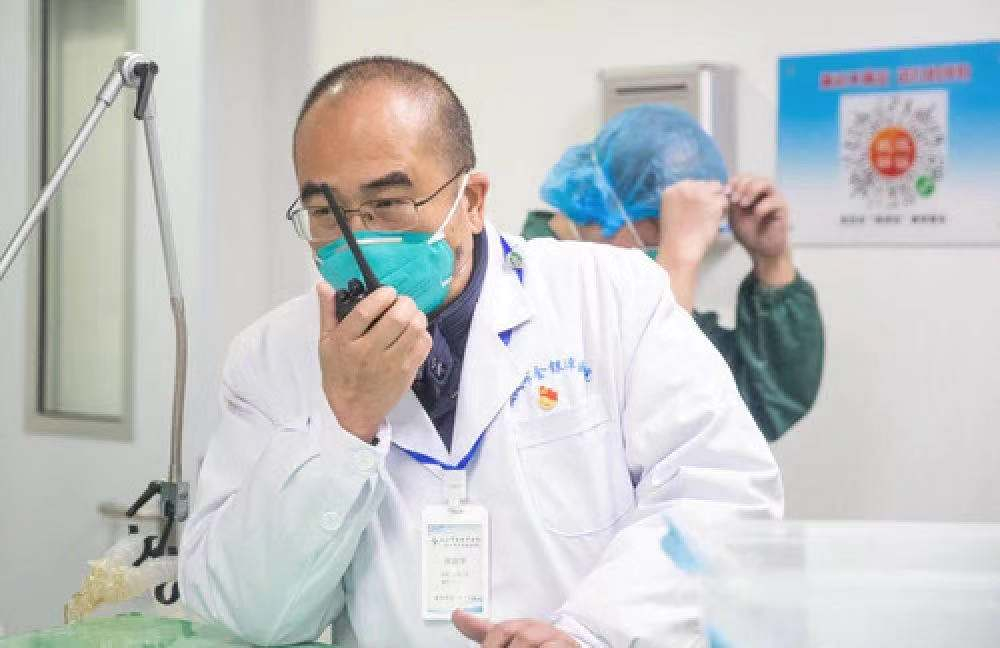
Zhang Dingyu in Wuhan Jinyintan Hospital. /Xinhua Photo
Zhang bravely took the responsibility to lead the unprecedented war against a this strain of novel coronavirus, which has caused hundreds of deaths in central China's Hubei Province.
While working with handicapped legs, his wife was confirmed to be infected with the virus after working in another hospital.
Zhang's story has tugged at the heartstrings of many Chinese as he shows the determination to fight against the deadly coronavirus.
'We are at the center of a storm'
The first seven patients with lung infections were sent to Wuhan Jinyintan Hospital on December 29.
As a designated healthcare entity for receiving patients infected with the coronavirus, Wuhan Jinyintan Hospital has become one of the most important battlefronts against coronavirus infection.
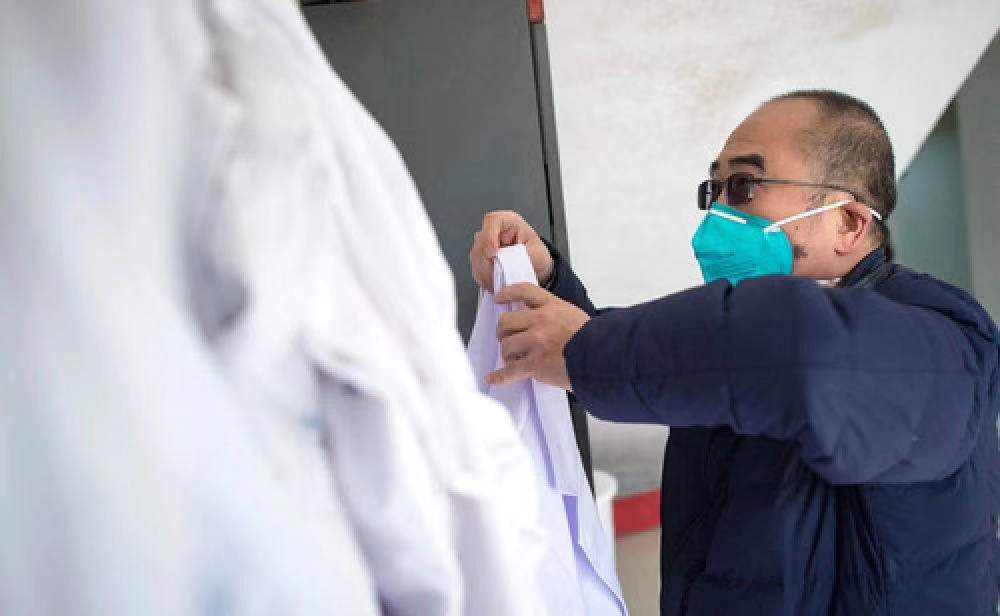
Zhang Dingyu. /Xinhua Photo
As an experienced doctor in infectious diseases, Zhang realized the war was on. But having to cope with the high demand with only 14 intensive care unit (ICU) wards, has given Zhang and his colleagues a lot of pressure and psychological stress.
Zhang also cautioned his colleagues to take increased precautions while at work, and order patients to stay in isolation wards, keeping a close eye on their condition.
The novel coronavirus was then identified one week later with the first few samples sent from Wuhan Jinyintan Hospital.
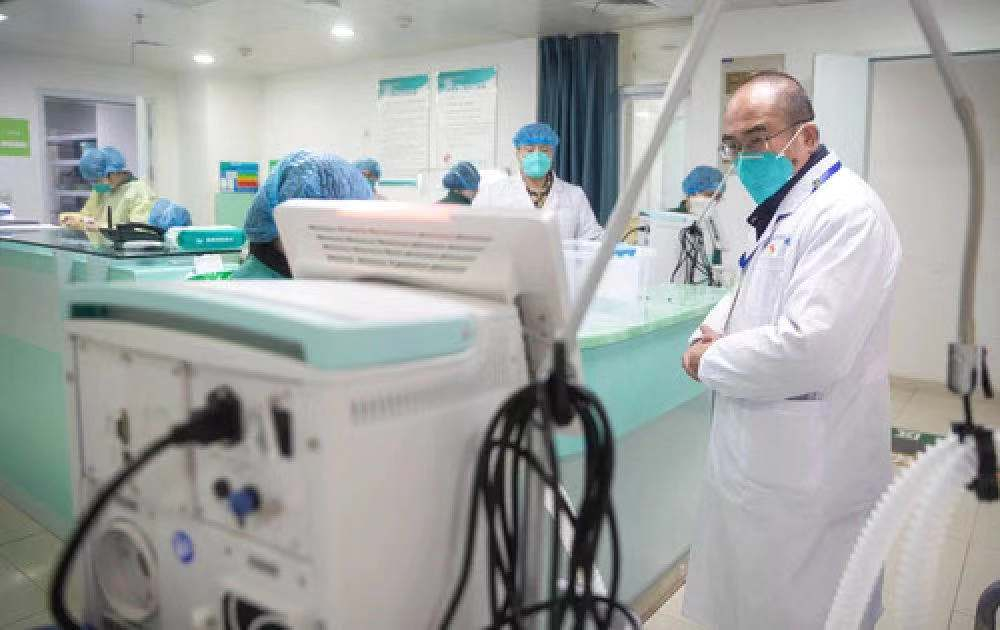
Zhang Dingyu at work. /Xinhua Photo
"We are at the center of a storm sweeping across the world, so we need to give all we have, give all we have to protect our city, and our Wuhan people," Zhang said.
As Zhang leads over 600 doctors and nurses confronting the disease, his strange way to walk alarmed his colleagues. He finally admitted he had fallen ill with ALS since October 2018 after constant inquiries.
ALS is a disease that gradually blocks the connection between brain and body. People with ALS become partially paralyzed leading to respiratory failure.
"I'm heartbroken every time I talk about it. I remember one time he almost fell off the stairs because his legs were so weak," a tearful Wang Xianguang, Zhang's colleague told CCTV News. "He told me many times in private that whenever it's just me and him, he may need me to give him a hand to stand up. This really makes me feel sad."
The lack of medical equipment and medical staff was then eased as support from Shanghai and the army medical teams came in a month later.
'I'm a good doctor, but I'm not a qualified husband'
One day, after working around the clock for nearly a month, Zhang received a message from his wife that brought him to his knees: She was diagnosed with the novel coronavirus while working at another hospital in Wuhan.
Zhang could only find time to visit his wife until three days after she got admitted to the hospital. Even then he could only stay for 30 minutes.
"I was afraid that I'd lose her because you don't know if your loved ones are going to get well or get worse. I was scared because I could do nothing for her," Zhang confessed it was the first time he cried after the virus breakout. "Later I told my wife our family cannot lose her."
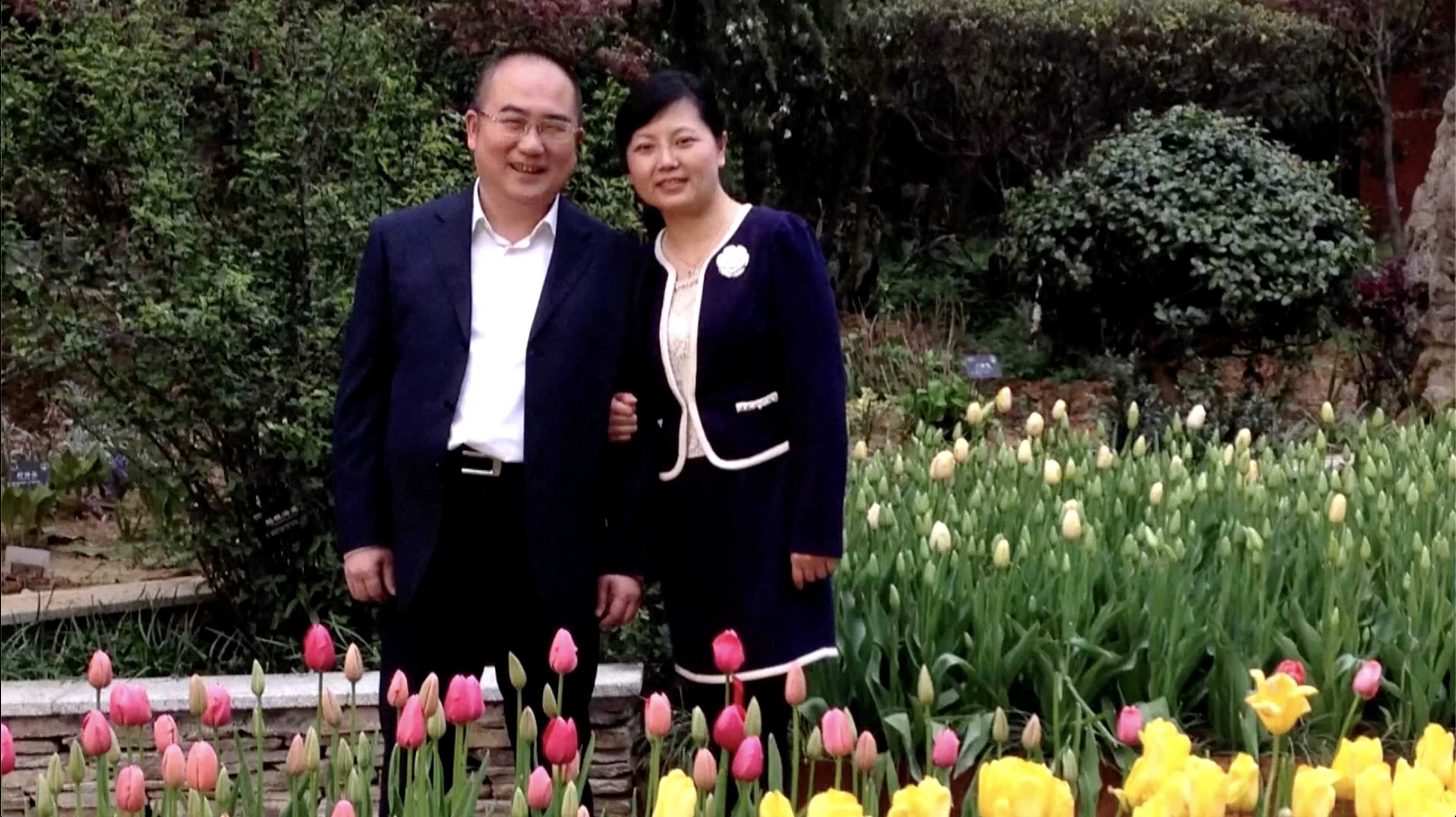
Zhang Dingyu and his wife. /Xinhua Photo
Fortunately, the good news came that his wife had recovered ten days after treatment.
Zhang, 57, has offered medical services along with Chinese medical teams to Algeria and Pakistan.
Three days after the 8.0-magnitude earthquake hit central China's Sichuan Province in 2008, Zhang entered a crushed city with his medical team members to offer help.
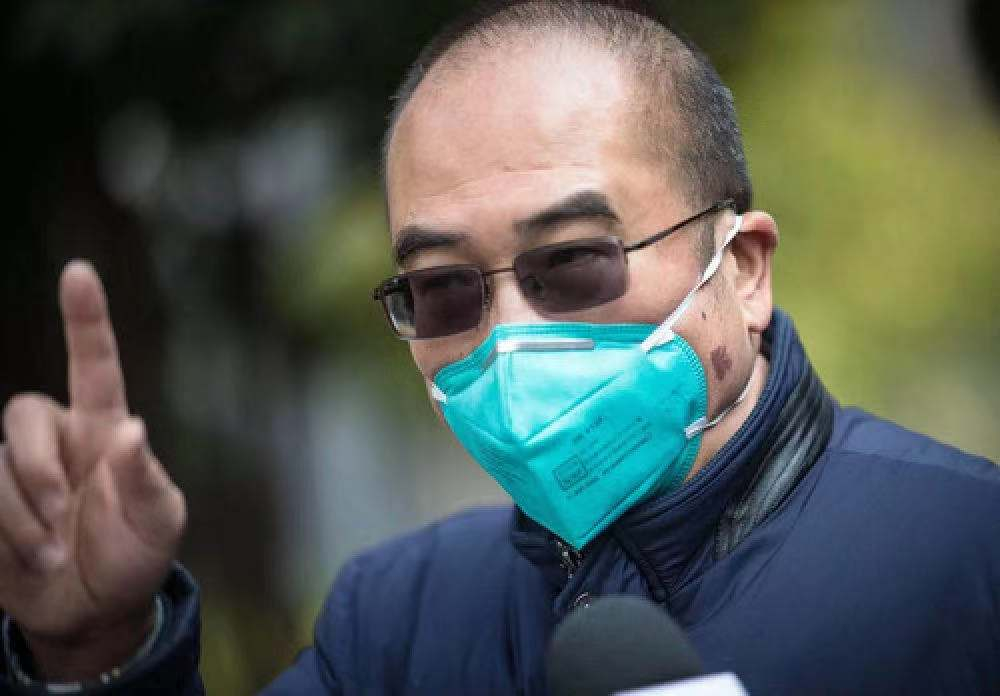
Zhang Dingyu in an interview. /Xinhua Photo
"Life is always short. I need to do more to accomplish the things that I might leave behind, then I would leave without too many regrets," Zhang said.
There have been at least 72 infected people who have recovered and have been discharged from Wuhan Jinyintan Hospital.

